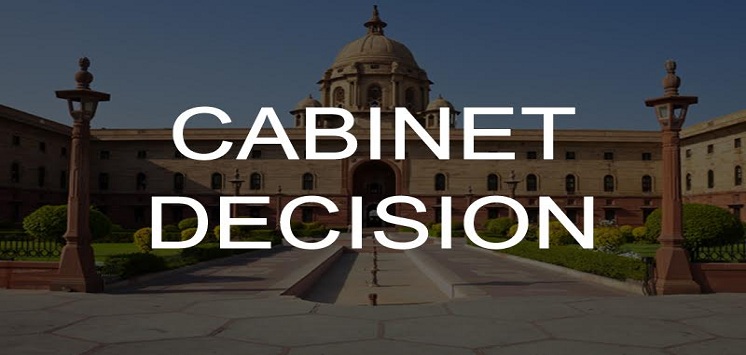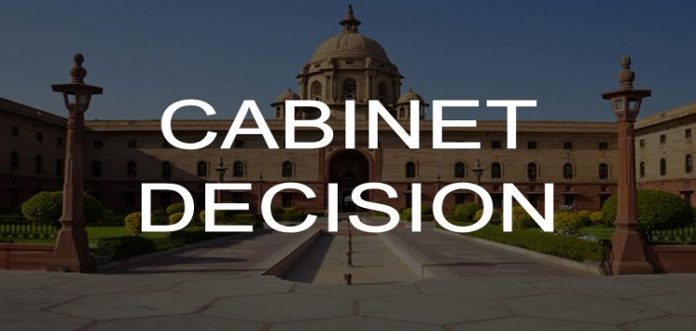On august 30th august ,2017 the Cabinet approved series of MOU’s in different fields.
 MoU by the Election Commission of India with the Election Management Bodies of other countries
MoU by the Election Commission of India with the Election Management Bodies of other countries
Today cabinet approved the proposal of the Election Commission of India(ECI) to enter into Memorandum of Understanding (MoU) on cooperation in the field of electoral management and administration with the Election Management Bodies of other countries/International Agencies.
This includes countries like Ecuador, Albania, Bhutan, Afghanistan, Guinea, Myanmar and The India International Institute of Democracy and Election Management (IIIDEM) and the International Institute for Democracy and Electoral Assistance (International IDEA).
These MOU’S will improve bilateral relations between these countries and India will help them in the field of organizational and technical development of electoral process; support in exchanging information, institutional strengthening and capacity building, training of personnel, holding regular consultations etc.
MoU with Myanmar for the Conservation of Earthquake-Damaged Pagodas at Bag
Cabinet approves MoU with Myanmar for the Conservation of Earthquake-Damaged Pagodas at Bagan. Implementation of this project will strengthen India’s ties in culture and religion with Myanmar. This project has religious significance as well as the touristic significance. It will be an opportunity to showcase India’s expertise in the restoration and conservation of monuments not only to the people of Myanmar but also to the tourists from other countries.
Cabinet approves promulgation of GST (Compensation to States) Ordinance, 2017
Cabinet approves promulgation of the Goods and Services Tax (Compensation to States) Ordinance, 2017. The approval would allow to increase the maximum rate at which the Compensation Cess can be levied from 15% to 25% on
- a) motor vehicles for transport of not more than thirteen persons, including the driver [falling under sub-headings 870210, 8702 20, 8702 30 or 8702 90]; and
- b) motor vehicles falling under headings 8703.
MoU on “India-Israel Industrial R&D and Technological Innovation Fund”
Cabinet approves MoU on “India-Israel Industrial R&D and Technological Innovation Fund”. India and Israel will make a contribution of four million US Dollars each for the Fund, annually for five years. The Innovation Fund will be governed by a joint Board which will consist of four members from each country. The MOU focuses on Industrial R&D and Innovation technologies in the fields of water, agriculture, energy and digital technologies. It will promote entrepreneurship and it will contribute directly to start up India programme.
MoU between India and Brazil for cooperation in the fields of Zebu Cattle Genomics
Cabinet approves MoU between India and Brazil for cooperation in the fields of Zebu Cattle Genomics and Assisted Reproductive Technologies in cattle. An implementation committee shall be created with an equal number of representatives of each party for determining the activities and developing work plans and for their evaluation. It will broaden our existing knowledge base on sustainable dairy development and institutional strengthening.
Cabinet apprised of jointly issue of postage stamps between India and Canada
Cabinet apprised of jointly issue of postage stamps between India and Canada. India and Canada have mutually agreed to jointly issue a set of two Commemorative Postage Stamps on India-Canada, on the theme “Diwali“. The joint stamps will be released on 21st September, 2017.Diwali it is a cultural theme for both the countries and also considering the large presence of Indian Diaspora in Canada.
Cabinet approves equivalence of posts in PSUs, PSBs
Cabinet approves equivalence of posts in Central Public-Sector Undertakings (PSUs), Banks, Insurance Institutions with Posts in Government so that the children of those serving in lower categories in PSUs and other institutions can get the benefit of OBC reservations. This will ensure that the children of those serving in lower categories in PSUs, Banks, insurance and other institutions can get the benefit of OBC reservations, on par with children of people serving in lower categories in Government. This will also prevent children of those in senior positions in such institutions, who, owing to absence of equivalence of posts, may have been treated as non-Creamy Layer by virtue of wrong interpretation of income standards from cornering government posts reserved for OBCs and denying the genuine non-creamy layer candidates a level playing field.





